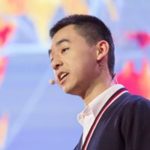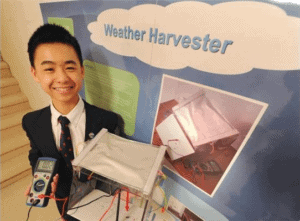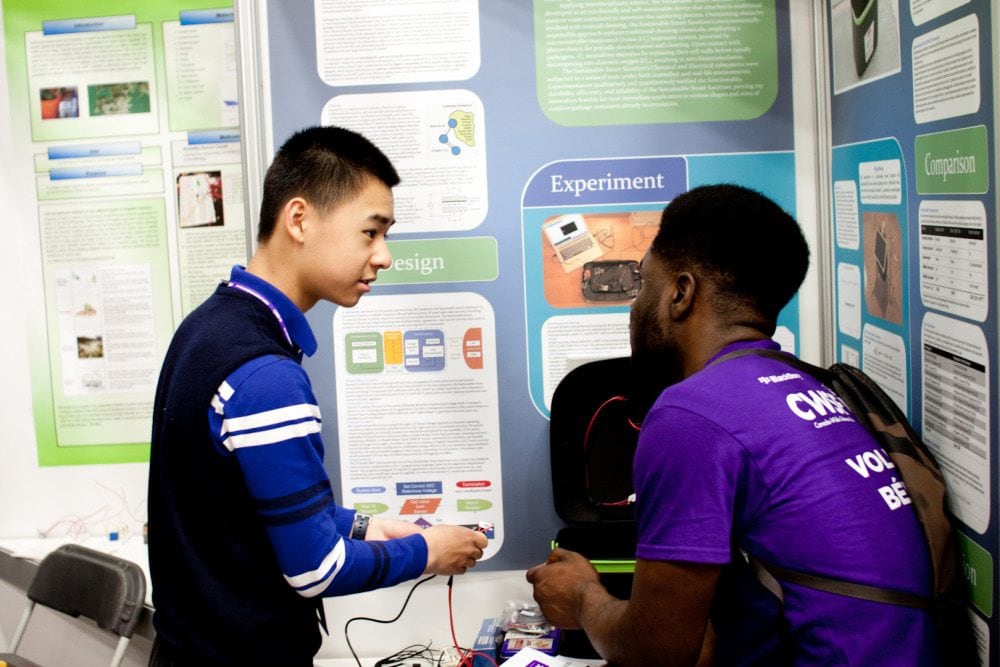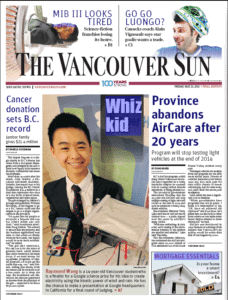The Future of Education | Raymond Wang: The Science Fair Journey
This month, we’re highlighting the topic of Education by asking some of our expert speakers on the subject to share thoughts on where they believe we are heading.
 Today’s guest blog comes from Youth Innovator, Entrepreneur & Non-Profit Leader Raymond Wang. He is passionate about science, technology, engineering, and entrepreneurship. His internationally-acclaimed research in engineering mechanics, renewable energy, biomechanics, environmental management and computer science have made him a go-to commentator on innovation.
Today’s guest blog comes from Youth Innovator, Entrepreneur & Non-Profit Leader Raymond Wang. He is passionate about science, technology, engineering, and entrepreneurship. His internationally-acclaimed research in engineering mechanics, renewable energy, biomechanics, environmental management and computer science have made him a go-to commentator on innovation.

Science Fairs are one of the most misunderstood gems of education. All too often, the term elicits thoughts of cliché baking soda volcanos and lemon batteries. For many educators, herein lies the inherent source of confusion – after all, what use are these silly juvenile experiments when kids ought to be doing serious work with their algebra workbooks?
Yet, these misconceptions of monotony hardly represent the true educational breadth and depth of hands-on research competitions. Any student who has gone to a regional science fair would eagerly talk about the wide range of problems that are being explored from fields spanning biochemistry and nanorobotics. For many like me, the life-changing power of science fairs has extended far beyond the science itself and has shaped the way we view the world.
What do I mean? Perhaps, the best way to convey the value of hands-on research is through a tidbit from my own science fair journey.
***
It all started for me in mid-October of seventh-grade, when I lay stretched out in bed, reflecting on the day. A week ago, our science teacher had assigned the class to brainstorm ideas for science fair projects. For days, I searched around for interesting articles, hoping to find inspiration.
That morning, I had encountered a feature in Popular Science about piezoelectric materials— peculiar substances that, when compressed, generated an electrical charge. I was still trying to wrap my head around this strange concept when the thunderous shower of raindrops on the roof of my house diverted my attention.
“Plop.” “Plop.”
Suddenly, it hit me: if the rain outside could make such a loud sound for me to hear indoors, it definitely must contain a substantial amount of energy. Why then, hadn’t anyone thought about harnessing this impact energy to help power the home?
Here, the spark of an idea was truly momentous: it gave a twelve-year-old kid, with a simple, rudimentary understanding of classroom science, the hope of applying concepts to potentially make a real difference in the world with his own two hands. And so, my very first science fair project was born.
 Before long, I found myself presenting this very project to professors and professional engineers at the Canada-Wide Science Fair. It was here that I discovered an entirely new community of kids, hailing from all across the country, who were just like me – passionate about making an impact in the world, and finding real solutions to real problems in all sorts of diverse fields.
Before long, I found myself presenting this very project to professors and professional engineers at the Canada-Wide Science Fair. It was here that I discovered an entirely new community of kids, hailing from all across the country, who were just like me – passionate about making an impact in the world, and finding real solutions to real problems in all sorts of diverse fields.
As time went on, science fairs taught me to become a better innovator: every year, some practical problem would send me on a quest for solutions, learning to figure things out along the way. Scouring through journals and articles on the web, I, like many other science fair participants, developed a knack for finding the right tools that I needed to tackle virtually any project.
My adventures would lead me to explore a number of fields, from biomechanics and environmental management to embedded systems and engineering mechanics. With each day at my workbench, I grew to look upon uncertainties of the science with a keen eye, building an audacity to venture where previous researchers had faltered, with the goal of taming the unknown.
***
Nearly five years have passed since that fateful, showery night. Objectively speaking, my high school journey has led me to discover a community of brilliant young scientists, a patent to call my own, and a fair number of international accolades. Yet, much more importantly, research has dramatically shaped my view of the world and opened up my eyes to exploration: a journey where the unknown reveals opportunity, where determination overcomes the impossible, and where positive ambition promises to one day improve the lives of the entire population.

Raymond Explaining the Sustainable Smart Sanitizer
Science fairs mean going past the multiple-choice scantron to learn the ways through which we can apply classroom concepts to turn any idea into action. Doing research means developing a critical capacity to question the status quo, to grow from a passive learner in the classroom into an active problem-solver in the real world.
Through hands-on research, I found the courage to plan, create, test, and repeat. I found the skills and persistence to inform myself, from the ground up, to tackle virtually any problem through an engineering and design thinking mindset. I found a community of peers, mentors, and resources to create new value while “standing on the shoulders of giants”, all in hopes of pushing the boundaries of science and technology for a brighter future.


 Learn more on Raymond’s presentation
Learn more on Raymond’s presentation